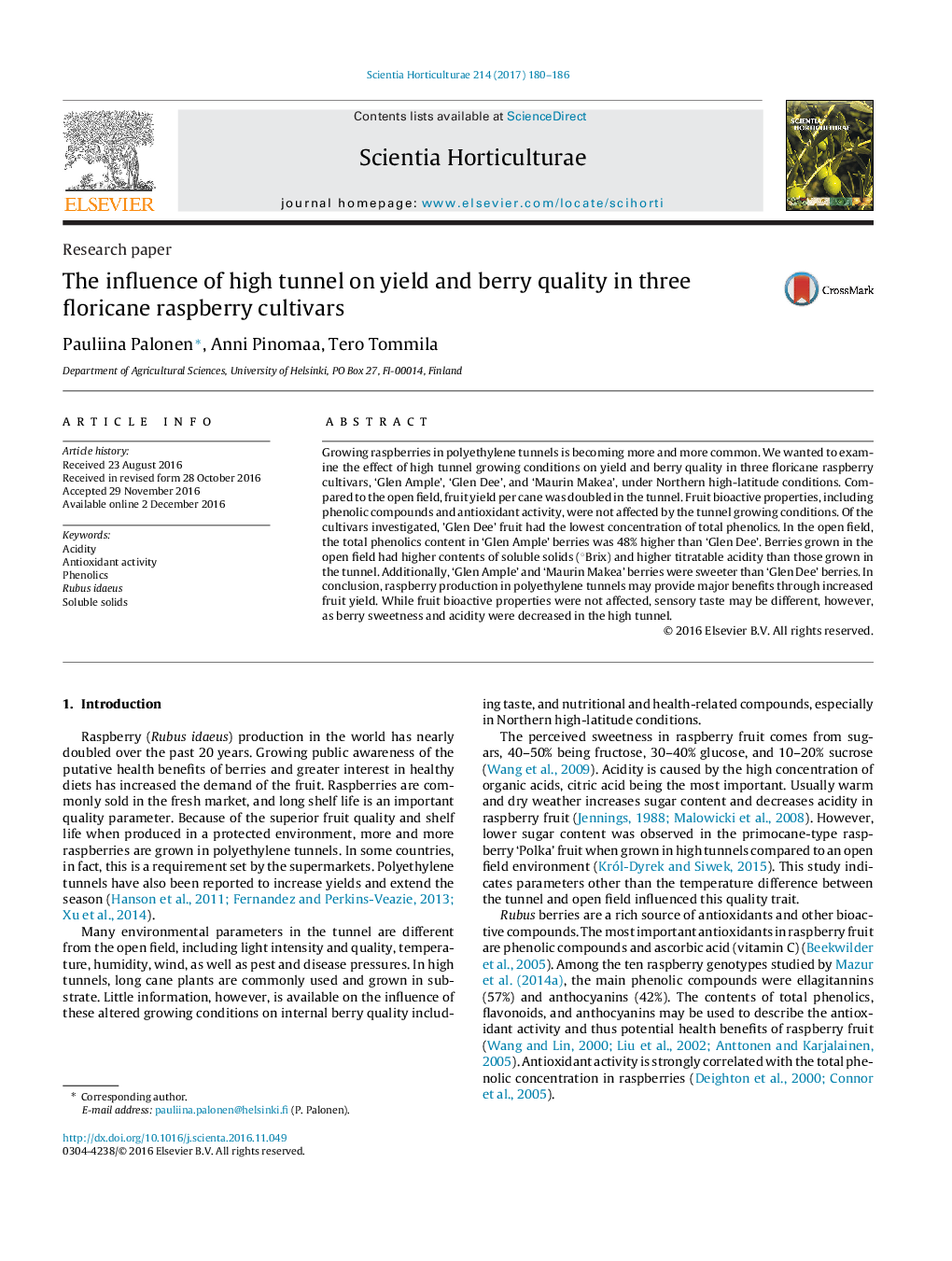| Article ID | Journal | Published Year | Pages | File Type |
|---|---|---|---|---|
| 5769808 | Scientia Horticulturae | 2017 | 7 Pages |
â¢The effect of tunnel growing conditions on three raspberry cultivars was studied.â¢Fruit yield per cane was doubled in the tunnel compared to the open field.â¢Contents of phenolic compounds and antioxidant activity were not affected.â¢Berry sweetness and acidity decreased in the tunnel.â¢Cultivar differences were more notable than the effect of growing conditions.
Growing raspberries in polyethylene tunnels is becoming more and more common. We wanted to examine the effect of high tunnel growing conditions on yield and berry quality in three floricane raspberry cultivars, 'Glen Ample', 'Glen Dee', and 'Maurin Makea', under Northern high-latitude conditions. Compared to the open field, fruit yield per cane was doubled in the tunnel. Fruit bioactive properties, including phenolic compounds and antioxidant activity, were not affected by the tunnel growing conditions. Of the cultivars investigated, 'Glen Dee' fruit had the lowest concentration of total phenolics. In the open field, the total phenolics content in 'Glen Ample' berries was 48% higher than 'Glen Dee'. Berries grown in the open field had higher contents of soluble solids (°Brix) and higher titratable acidity than those grown in the tunnel. Additionally, 'Glen Ample' and 'Maurin Makea' berries were sweeter than 'Glen Dee' berries. In conclusion, raspberry production in polyethylene tunnels may provide major benefits through increased fruit yield. While fruit bioactive properties were not affected, sensory taste may be different, however, as berry sweetness and acidity were decreased in the high tunnel.
